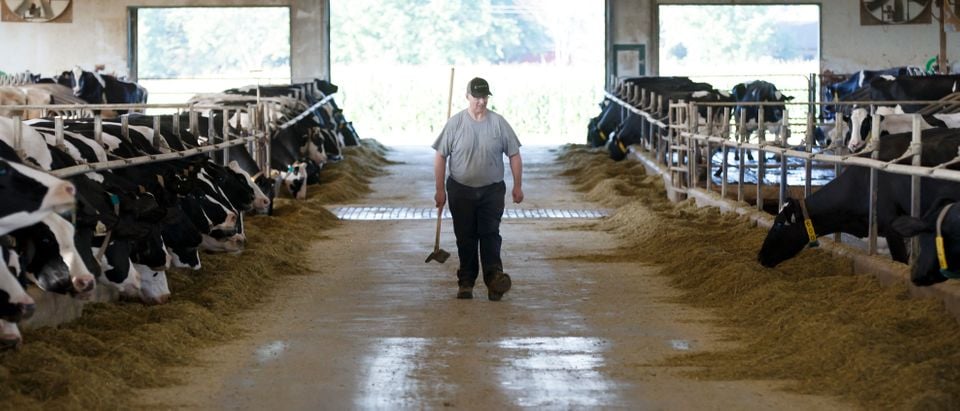Marty Irby doesn’t give a damn about family farmers; he and the Animal Wellness Action organization, including former HSUS Executive Director Wayne Pacele, are only interested in eliminating meat consumption and lining their pockets at the expense of honest, hardworking farmers.
That’s why Irby recently attacked the beef and pork checkoff programs in an op-ed.
The checkoff programs are congressionally created, agricultural-industry-funded research and promotion boards. There are 22 of them — managed by the commodity growers they support – that charge a small fraction of a farmer’s sales to support and market agricultural products (think “Pork. The Other White Meat®” and “Got Milk®”) and to conduct important research for the benefit of all farmers.
For hog farmers, for example, it’s 40 cents of a $100 sale. In return, the U.S. Department-of-Agriculture-supervised checkoff programs have helped farmers and ranchers of every type and size to the tune of tens of millions of dollars over the past 42 years.
A recent return-on-investment study — federally required at least every five years — of the Pork Checkoff, for example, found that every hog farmer received $25.50 for each $1 paid into the program.
A lot of that ROI is from the tremendous increases in U.S. pork exports, which pork industry organizations, including the National Pork Board, which administers the Pork Checkoff, help foster through trade missions, international promotions and other activities. Indeed, $53.47 of the average $149 each farmer made on every hog sold in 2017 was because of the nearly $6.5 billion of U.S. pork exported last year.
Irby wants to resurrect a farm bill provision that would, he wrote, “create transparency and accountability and prohibit checkoff funds from being used for lobbying.”
Checkoff activities are audited annually and all contracts that checkoffs enter must be reviewed and approved by USDA to ensure value for farmers and to make sure money isn’t being spent on prohibited activities, such as lobbying.
Additionally, after a 2017 study of the checkoff programs, the U.S. Government Accountability Office made several recommendations for tightening oversight of them, which USDA agreed to do.
And contrary to Irby’s intimation that it doesn’t, the law already precludes checkoff money from being used for lobbying, meaning his claim that “hundreds of millions” of checkoff funds have been used to influence policies “that have wreaked havoc on family farmers” is false.
(His example of the Country-of-Origin Labeling law is laughable. COOL added to the costs of meat production and violated U.S. international trade obligations. Irby lied in writing that without COOL “foreign-grown” beef can be labeled a product of the United States. Federal law requires all meat imports to be labeled with the country from which they are imported.)
Perhaps the funniest part of Irby’s diatribe was this phrase: “in the spirit of true conservatism and reforming our runaway government …”
He runs an animal-rights political action committee/lobbying organization that takes donations from little old ladies who think they’re helping rescue puppies and kittens.
If Animal Wellness Action follows HSUS’s lead, most of its PAC giving will go to non-conservative candidates, and the money it rakes in from donors will go to measures restricting how livestock and poultry farmers raise and care for their animals and to efforts for eliminating meat consumption, goals that belie that “runaway government” rhetoric.
(The group is counting on Big Brother to overregulate farming!)
Irby doesn’t support a check on the checkoffs as a way to help family farmers. He backs it to limit funds that could be used – he thinks – to oppose his anti-farming legislative and regulatory agenda.
But, in fact, the defeated farm bill provision would have, for example, prohibited checkoff programs from contracting with any entity that has an interest before the federal government such as, well, just about any business, research organization or land-grant university.
Agricultural organizations opposed anti-checkoff legislation because it was ill-conceived and too broad. It would have had far-reaching, detrimental effects on the marketing of and research for agricultural commodities.
It sought to address problems that don’t exist and did so in a manner that would have caused significant, long-lasting harm to all America farmers and to free enterprise.
Jim Heimerl is a hog farmer from Johnstown, Ohio, and current president of the National Pork Producers Council.
The views and opinions expressed in this commentary are those of the author and do not reflect the official position of The Daily Caller.


